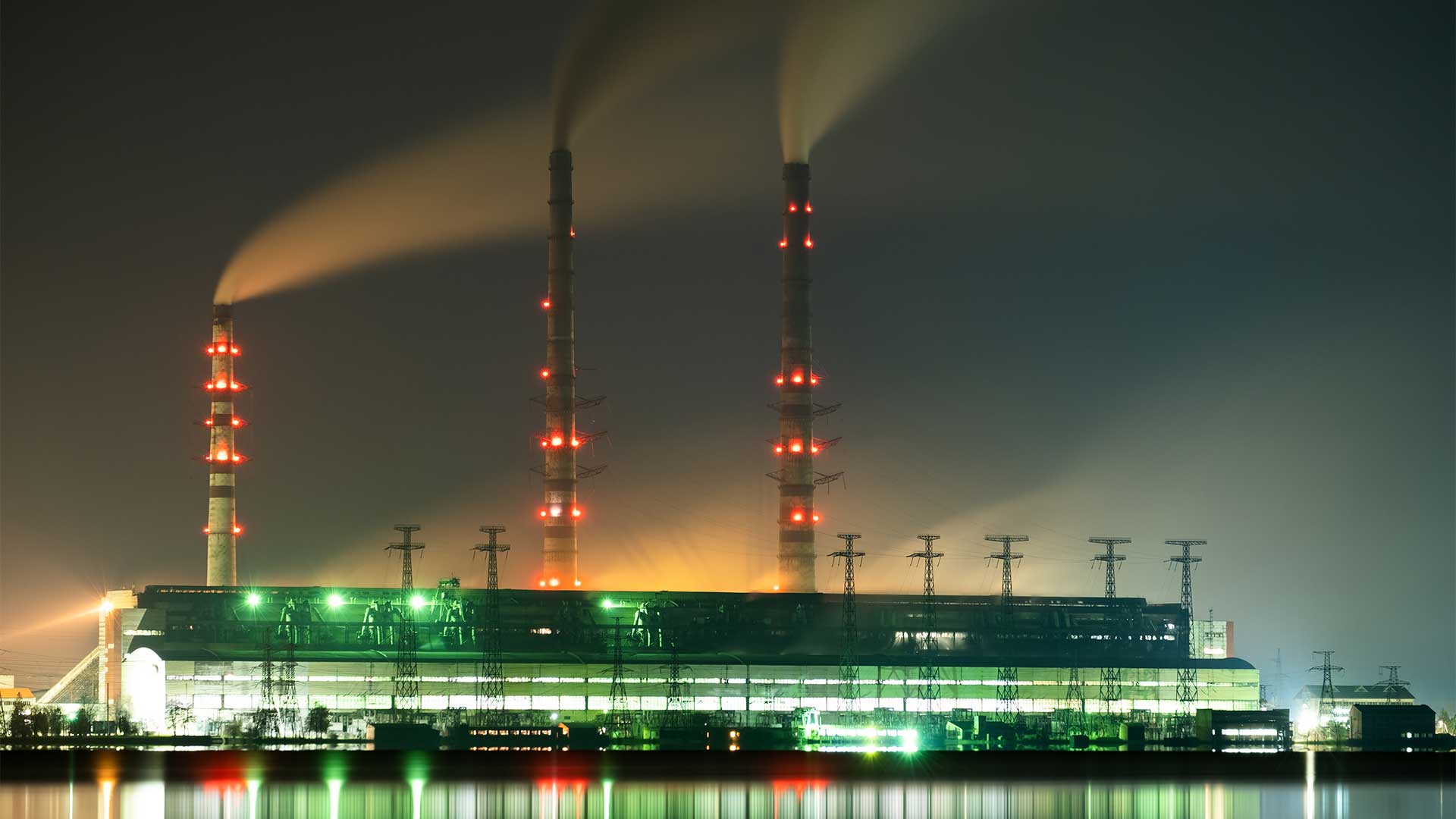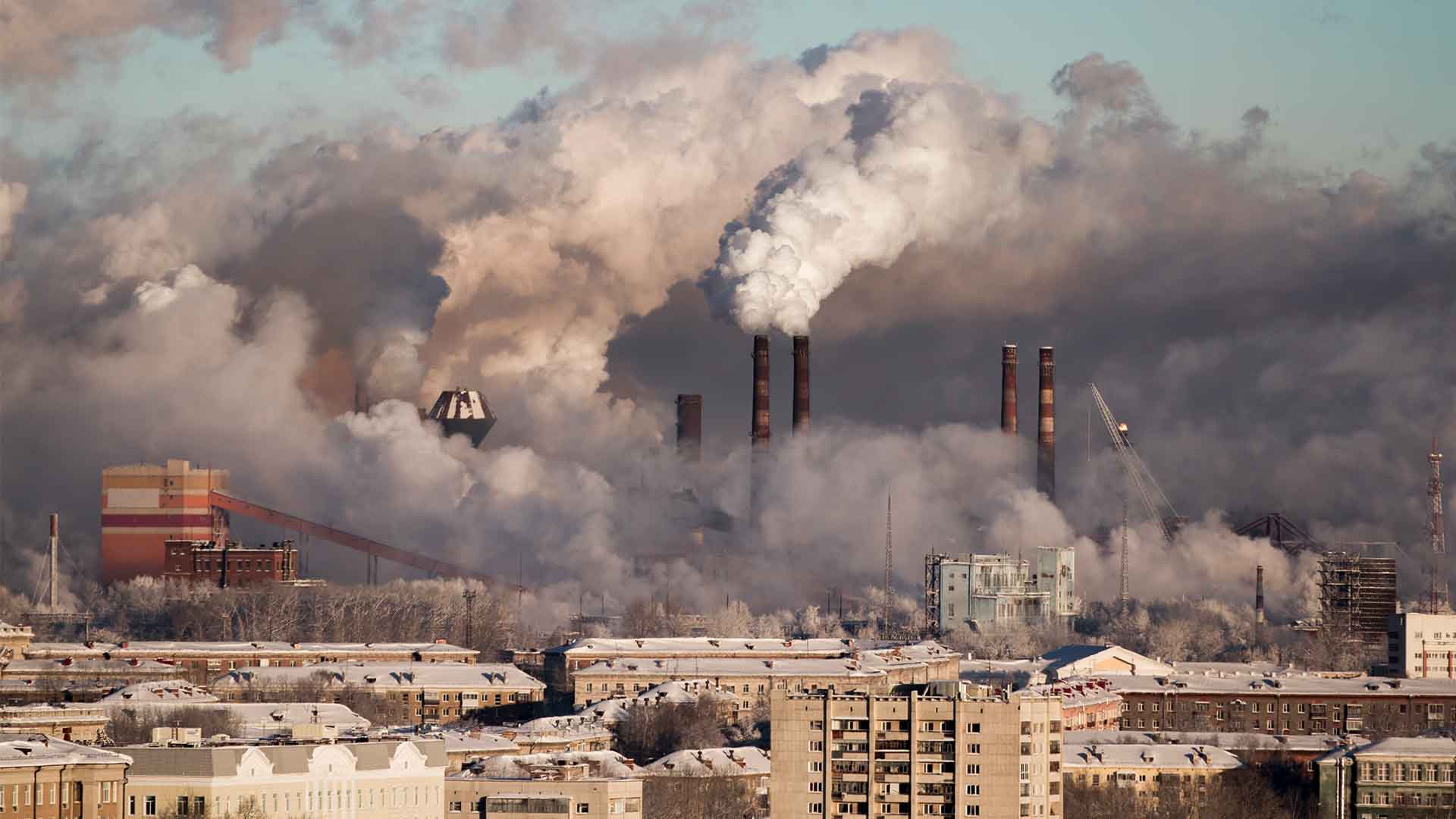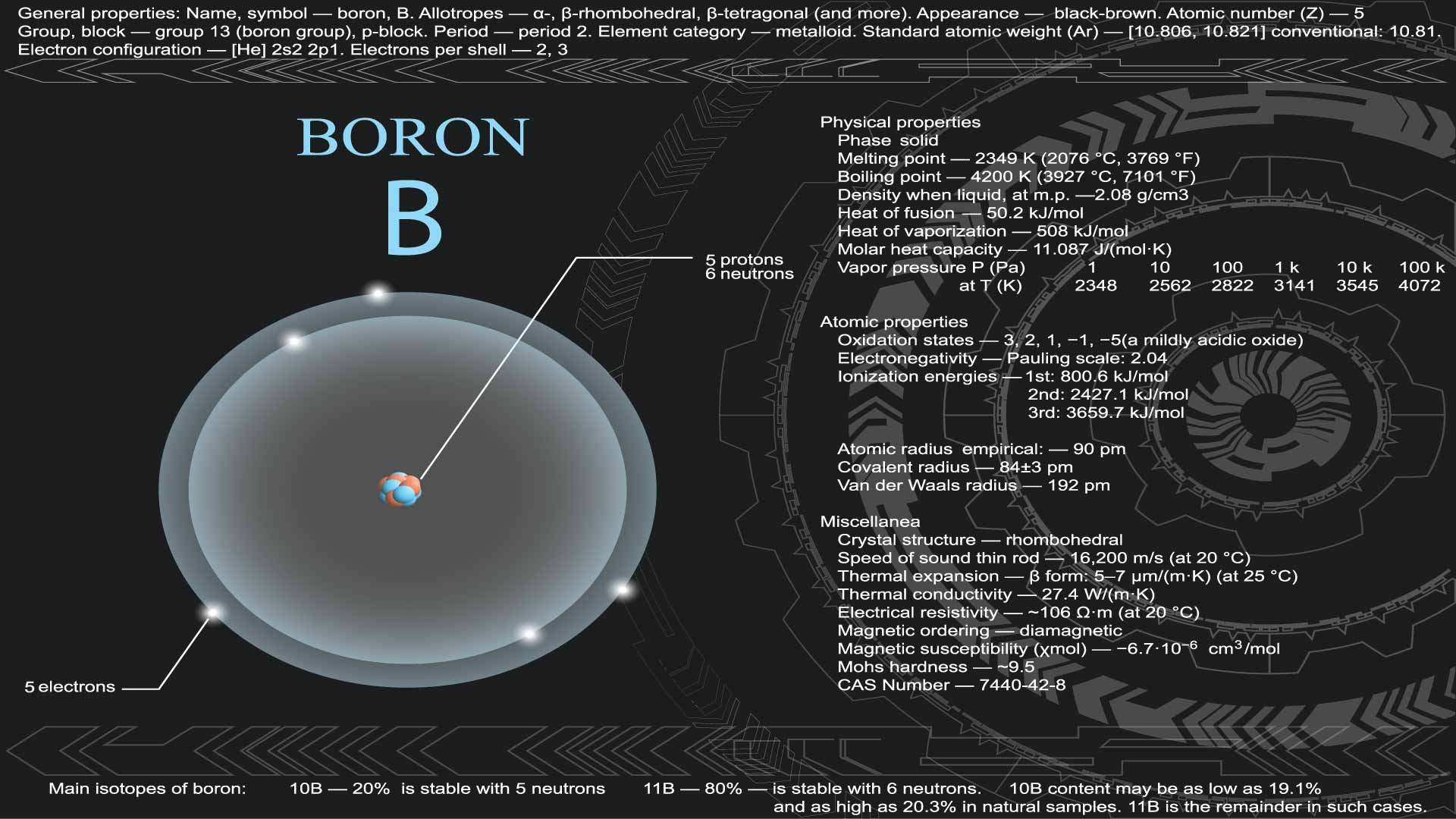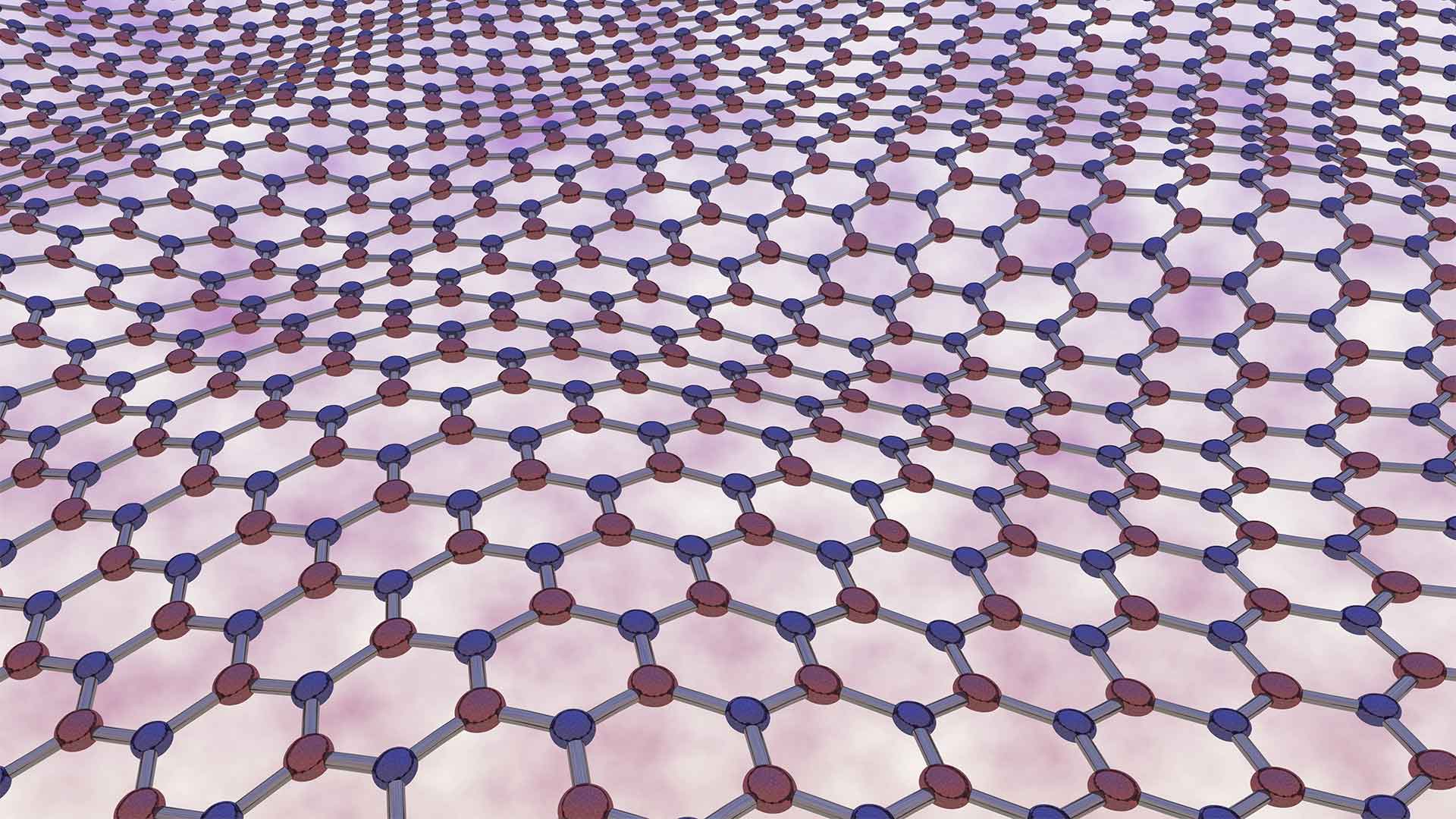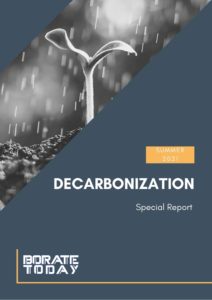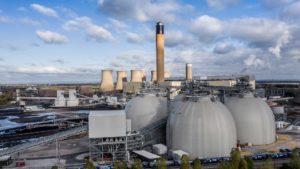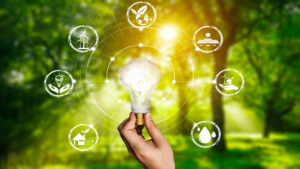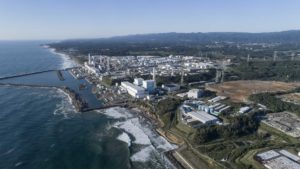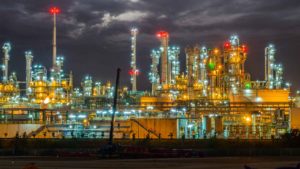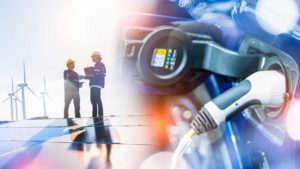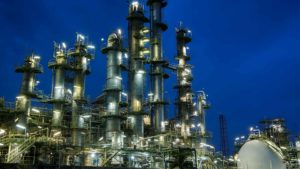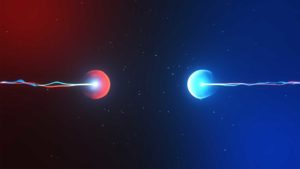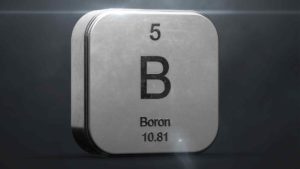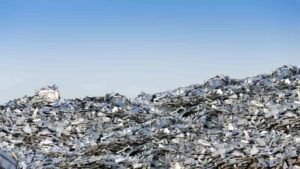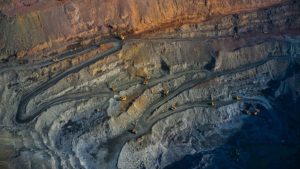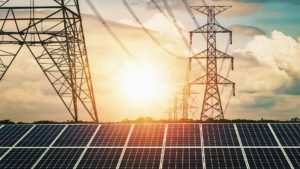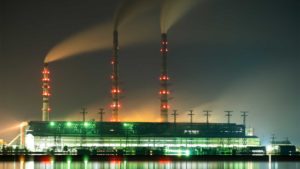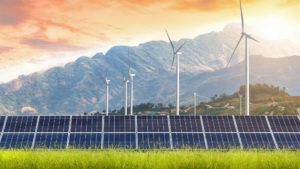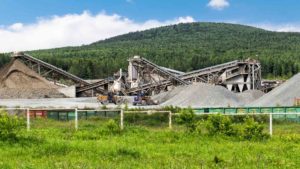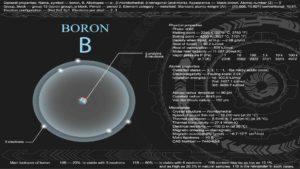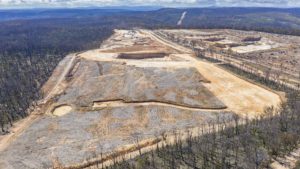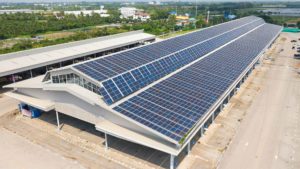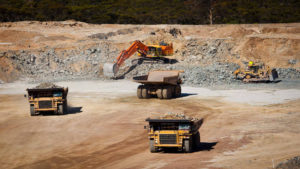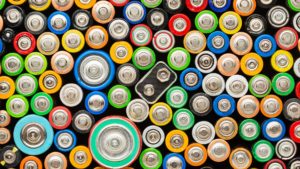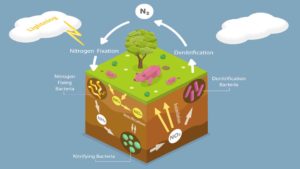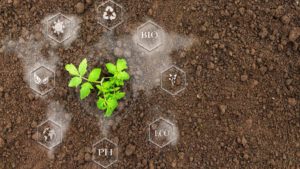DECARBONIZATION
Decarbonization, the process of reducing carbon emissions to mitigate climate change, is the key item on the collective agenda of nations to safeguard the planet. The world has come together to acknowledge that something must be done about global warming. And we are all taking small steps towards this goal. We have yet to see the true impact these changes will have on our planet. But we need to act now before it’s too late.
The transition to a low carbon economy is inevitable. The only question left is how fast the change will take place, and who will make it happen. We’ll explore the advantages of going green from an individual, community, and company perspective. This helps to understand what can help motivate businesses towards decarbonization.
Global leaders concur in pushing forward on a program of Decarbonization to manage the carbon cycle, reduce industrial emissions, reduce Carbon Dioxide emissions, and supply borate compound solutions that help manage harmful emission levels on the planet. Boron can play a part by reducing harmful levels of carbon through reduction of emissions, enabling clean power, helping secure the food supply chain, and providing nutrients in diets for healthy living.
Carbon-free Energy Technologies
Carbon Emission and The Greenhouse Effect Fossil fuels, including coal, natural gas, and oil, have fueled the modernization of global economies. While being the fundamental energy drivers for all developed and developing nations over the last century, they have...
Podcast – Boron and Decarbonization in the Chemicals Industry
Boron and Decarbonization: To reduce their carbon footprint and make the world cleaner, many chemical industry companies are embracing decarbonization strategies. What can the chemical sector do to contribute significantly to climate change by reducing greenhouse gases from the chemicals manufactured using fossil fuels?
Today, we will review current practices and regulations in an industry-wide drive to meet goals and look at how the latest technological breakthroughs play a pivotal role in shifting toward more sustainable and eco-friendly infrastructure.
Balancing Habitat versus Critical Mineral Mining
Balancing Habitat versus Critical Mineral Mining: Lithium and boron are two examples of crucial minerals essential in reducing our planet's carbon footprint for industries such as defense, automotive, construction, aviation, and aerospace. It is challenging to preserve the natural environment when starting new mines to extract these resources. How do companies such as Rio Tinto, American Pacific Borates (currently rebranding to 5E Advanced Materials), and Ioneer manage this dilemma and obtain the permits necessary in their respective locations?
FEAM: A Solution To Global Decarbonization
FEAM focuses on providing secure and reliable supplies of critical materials that empower global decarbonization and creating a better future for generations.
Decarbonization and Boron
Rio Tinto Mine. The Serbian government has finally revoked Rio Tinto's licenses for lithium exploration in Serbia in the latter part of January 2022. The government gave in to the protesters who have been opposed to the Anglo-Australian mining company's project on environmental grounds. Last year, the company committed to the project as global miners push for metals necessary to transition to green energy. This includes lithium which is used in the production of electric vehicle batteries. The project was already suspended in December 2021 due to environmental deterioration and forced displacement concerns.
Decarbonization – Special Report
What is Decarbonization Decarbonization is akey topic in Climate Change initiatives the process of reducing the amount or concentration of carbon in certain substances. This can be done by removing all traces, forms and quantities from a gas, liquid or solid...
Carbon Capture Funding and Boron
Carbon capture technology has been developed for coal-fired power plants with FECM support for over two decades. Over 20 successful pilot-scale projects have been implemented including a showcase demonstration project which captures and stores over one million metric tons of carbon dioxide per year.
Sustainable Future Using Materials Science
Sustainable future using materials science is achieved through developing new materials and technologies that can help address climate change and resources.
Podcast – Boron at Fukushima
In today's podcast, we’re going to look at the Fukushima nuclear accident in 2011 and how Boron helps to contain the radiation and the potential spread of nuclear fallout.
How Boron is used to Help in Oil Recovery
Modern civilization has been heavily influenced by the discovery of petrochemicals. The entire human race is driven by this natural resource, dubbed liquid gold. Petrochemical derivatives are overwhelmingly present in our lives --- as plastic bags/wrappers that...
Boron Reduces Carbon Dioxide
Boron reduces carbon dioxide: Boron is one such amazing catalyst that reduces CO2 in the presence of only water and light irradiation. This serves as a foundation for a new and more efficient method of transforming CO2 into a usable carbon source for manufacturing fuels and chemicals.
Boron in Bioconversion
Rio Tinto Mine. The Serbian government has finally revoked Rio Tinto's licenses for lithium exploration in Serbia in the latter part of January 2022. The government gave in to the protesters who have been opposed to the Anglo-Australian mining company's project on environmental grounds. Last year, the company committed to the project as global miners push for metals necessary to transition to green energy. This includes lithium which is used in the production of electric vehicle batteries. The project was already suspended in December 2021 due to environmental deterioration and forced displacement concerns.
How Can Governments Implement Decarbonization
The world is now facing the daunting reality of climate change. Cities are starting to feel the effects, with some areas experiencing more extreme weather conditions than ever before and rainfall patterns changing. Countries need to work together to reduce...
How Boron Helps Your Garden Thrive
Micronutrients play an important role in plants' life and growth. Mineral deficiencies can lead to serious problems with the plants such as stunted growth and rougher leaves. It can also result in interveinal chlorosis of leaves, purpling of leaf margins and...
Boron as an energy carrier to increase efficiency
Boron and its compounds have a vital role to play as energy carriers to increase efficiency. The chemical industry has long been a significant contributor to climate change. Many chemicals are manufactured using fossil fuels, which produce greenhouse gases when...
Boron and Nuclear Fusion
Boron and nuclear fusion: Is Boron the key to Unlocking Energy via Nuclear Fusion? For the past eighty years, scientists have been exploring ways to capture energy to provide an inexhaustible supply of quasi-free, green energy. Boron via laser technologies, may finally provide the key to moving beyond the laboratory to commercialisation.
Industrial Decarbonization: The Path to a Cleaner Future
Industrial decarbonization is a critical step in the fight against climate change, and boron plays an essential role in this process. It helps reduces emissions from power plants and factories, on a quest for a more sustainable future.
Boron and Carbon Footprint
Boron carbon footprint - A major problem in the world today is climate change and it has been a long-debated topic. Some people are convinced that it is not happening, while others think the world is doomed to an uninhabitable fate. The truth is that climate change is happening and we must reduce its impact on our lives. The Earth's temperature has been increasing over time, and this will have a major impact on our planet.
Boron: The Essential Element
Boron is a valuable and versatile mineral, with uses ranging from aerospace to automotive. It's critical in pursuing renewable energy, food security, and decarbonization.
Boron Renewable Energy
Boron is an essential element of renewable energy. The use of other materials in the production process is reduced. Carbon emissions are decreased by using borates for insulation or fire-retardant purposes. Boron has many properties which make it a good candidate for this purpose. It plays a prominent role as we work to reduce our dependency on traditional methods like fossil fuels.
Reduce Carbon Emissions with Boron Technologies
Boron is a critical raw material for many sectors such as solar cells, fiber optics, and semiconductor manufacturing. Boron production is also tied to other elements like lithium which are increasingly in demand.
Metal Recovery Using Borates
Metal recovery refers to the process of extracting precious metals from various materials. One method for metal recovery involves using boron.
Decarbonization: Implications on different Sectors
Decarbonization, Boron and Mining The mining and metal industry is one of the most carbon-intensive industries in the world, generating a sizable percentage of global greenhouse gas emissions. How quickly has decarbonization been going on in the mining and metal...
DECARBONIZATION: Oil and Gas Sector Focus
It is no secret that the world needs decarbonization. For our planet to remain habitable, we need to lower the number of greenhouse gases in the air. Decarbonizing a material refers to lowering the amount or the intensity of carbon in it or by lowering the amount...
Decarbonization Magic Ingredient – Boron
Many people are not aware that Boron has a huge role in decarbonization. The process of decarbonization is the removal of carbon from fuels and other sources to reduce their emissions. One such source is natural gas, which contains significant amounts of carbon...
Deloitte Clean Tech Index
The Deloitte Australia Clean Tech (DACT) index is a global comparative ranking of companies. They rank organizations by recognizing their innovative and sustainable approach to business. Clean Tech stocks listed in Australia and was launched in 2008.
Boron Feeds the World
Progressively Agriculture needs to become efficient to give a population that Is developing. As a factor that is crucial to crop development. Boron feeds the world
Boron drives the Low Carbon Economy
The push for increased decarbonization is being felt worldwide as investors pressure companies to take this issue seriously. The fossil fuel industry is feeling the heat, too, with some of its well-known members stepping up their efforts to reduce emissions and make a difference. Governments are also taking notice of these changes, and there has been an increase in legislation designed to incentivize investments in clean energy technology. How can Boron help?
Porous Boron Nitride
The formation and applications of porous Boron Nitride have been the subject of popular research lately. Its high porosity and thermal stability will help pave the way for improving large-scale industrial gas and liquid separations, such as those used in carbon capture or water treatment processes by reducing the amount of energy required.
Sustainable Mining: The Future of the Industry
Sustainable mining is the sustainable extraction, processing, and use of mineral resources. It impacts the environmental and its economic feasibility.
Boron – The Wonder Mineral
The mineral Boron is a wonder. It is one of the building blocks for our modern lifestyle. We use it every day in all sorts of things, from concrete to computer chips. Yet few people know what it is or which countries use it extensively. This article will tell you...
Critical Material Boron Powering Decarbonization
Boron is a critical raw material for many sectors such as solar cells, fiber optics, and semiconductor manufacturing. Boron production is also tied to other elements like lithium which are increasingly in demand.
Boron, ESG and the Mining Industry
The ESG (Environmental, Social, and Governance) framework is growing in significance for mining companies, including those involved in boron extraction. ESG is a set of practices that mines have to comply with to ensure their future sustainability. It will become an integral part of every mining operation worldwide shortly. ESG compliance is difficult for some mines because it requires them to alter their production methods or management style. However, it is not only possible but necessary.
Boron in Energy Conservation
In response to energy conservation demands, energy conservation is a system has for some time been implemented in homes, as well as industrial and commercial sectors. When we talk about energy conservation, boron is the most efficient and naturally occurring chemical. Energy consumption adversely affects the economy on all levels; high energy costs are an impediment to economic development for any country. A determined effort needs are taken by both private individuals & large businesses alike to reduce their input of "energy" into our global ecosystem - which includes many aspects including economic output (gross domestic product).
Critical Minerals in Australia
Critical Minerals in Australia: The Australian Government has announced its intention to become more self-reliant in critical minerals as a result of geopolitical changes which threaten the ongoing supply of key industrial and energy commodities, which includes boron and borates.
Battery Systems for Advanced Energy Management
Advanced energy Energy is the next big thing in an increasingly competitive market. The most important contributors to this are battery production, so it's time for investors and analysts to get up-to-date on their latest trends. Energy storage has been a key...
Boron – The Building Block of Urbanization
Boron is a metal useful to modern societies for over 100 years. It is most commonly available as borax in household cleaning products. Or, as the boric acid in eye drops and mouthwashes. However, it has many other uses in urbanization. It is present in construction...
Biogeochemical Cycle of Boron
The biogeochemical cycle of boron is active in three main areas: the atmosphere, terrestrial, and marine (hydrosphere). Boron is present in trace amounts in these reservoirs and plays a vital role in many geochemical processes.
Sustainable Agriculture: A Greener Way to Grow
Sustainable agriculture uses micronutrients such as boron, zinc, and copper to promote soil health and support healthy plant growth.
Low Carbon Future with Boron
We live in a world where the environment is constantly going through changes. This is because we are running out of fossil fuels, and all it takes for our society to collapse is one more natural disaster. Therefore, the invention of new materials that facilitate the mission statement of a low carbon future is essential in today's day and age to decrease our dependence on fossil fuels.

